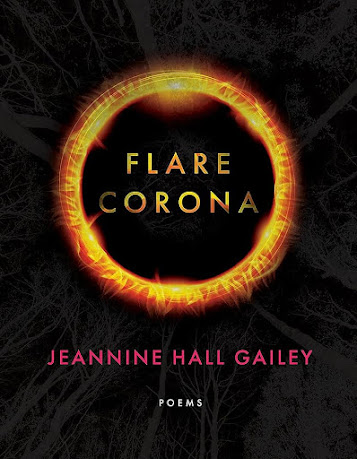My Life Is an Accident
of DNA and radiation, a
million missed chances
for death to sweep me off
my feet.
Too much of this, not
enough of that—
a witch’s spell for
trouble. Red-haired
and scarlet-fevered, born
with wings and a tail,
an immune system weak as
a kitten and a knack
for being in the wrong
weeds at the wrong time.
Fascinated with systems,
folders, and fossils,
tracking down each
dinosaur and later, delivery systems
for rare anti-virals.
Government research into nuclear facilities,
conspiracy theories
linked to aliens and solar flares.
I was never meant, not
planned, not absorbed into the mainstream,
never meant to survive
this long according to charts and scans.
She’s a miracle, they said,
she’s a mutant, she’s a baby born
of a bad seed. Modern
living makes a body bitter, our blood
and flesh filled with
hormone disrupters, flame retardants and false
positives. But I’m a hay-maker,
a harbinger,
a fateful warning of
things to come.
The latest from Redmond, Washington poet (and that city’s second official poet laureate) Jeannine Hall Gailey is Flare Corona (Rochester NY: BOA Editions, 2023), a constellation of first-person narrative lyric portraits and self-portraits clustered into four sections—“Post-Life,” “Harbingers,” “Blood Moon” and “Corona”—as she articulates an uncertain future around the weather, ongoing fires and the opening months of the pandemic, and of living with Multiple sclerosis. “You were warned.” she writes, as part of the poem “To Survive So Many Disasters,” “You promised / never to return. You set out on a journey / far from home. You looked out into darkness / and saw possibility.” Her poems explore layers of complication, both from within and surrounding, simultaneously burning out and refusing to fade away. There are moments in poems that see powerful lines occasionally buried, but Gailey writes from the centre and frin all sides of each of these ongoing crises, offering her lyric as a way to document what has happened, what is happening, what might still be happening. “Under the mountains,” she writes, as part of the short poem “That Summer,” “the earth tried to shake us off. / The oldest oak trees fell, / people sheltered and burned in swimming pools, / the screams of horses in the air.” She speaks of climate crisis and its ongoing traumas, as the poem ends: “We were tied to a troubled earth. / You said it was too late to leave anyway.”



No comments:
Post a Comment